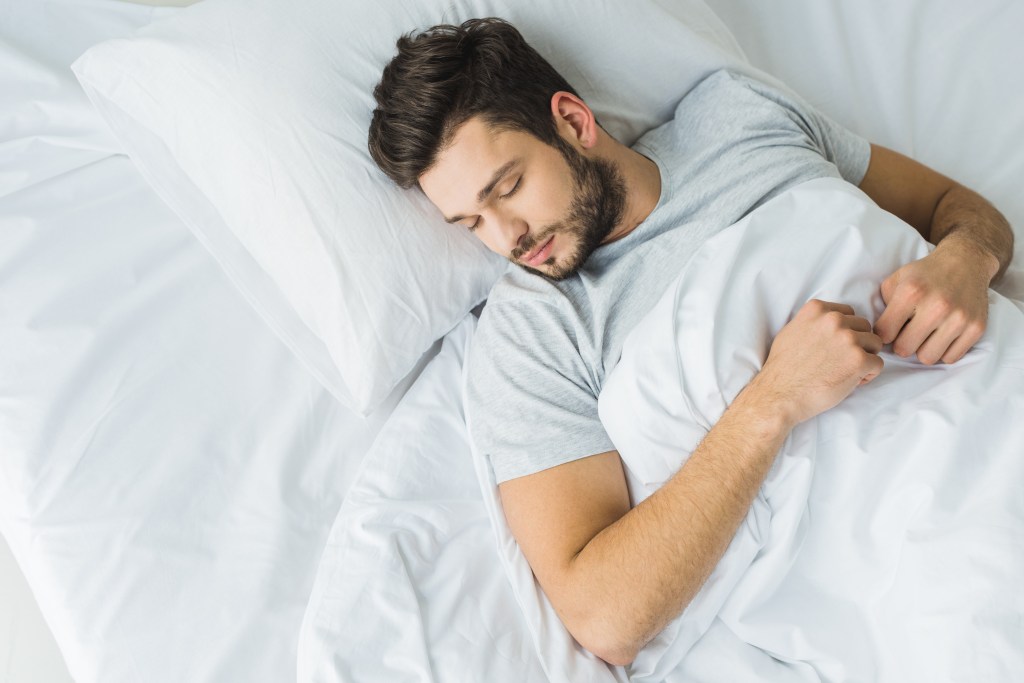Lack of sleep may be doing more than just making you groggy—it may be sabotaging your brain’s ability to keep intrusive thoughts at bay.
A new study published in the Proceedings of the National Academy of Sciences found that sleep deprivation weakens the brain’s defenses against unwanted memories, allowing them to flood your mind.

The hidden number of sleep deprivation
We’ve long known that poor sleep is a major player in emotional regulation, but until now, scientists weren’t sure why.
Researchers at the University of York and the University of East Anglia tested 85 healthy adults to find out. Half rested a full night, while the other half rested all night.
Using state-of-the-art technology, the team monitored brain activity while participants were shown faces associated with emotionally charged images, such as car crashes or fights. They were then asked to either recall or suppress the scenes associated with each face.
The results were surprising: The well-rested group showed significantly more activity in the right dorsolateral prefrontal cortex (the brain’s command center for thoughts, actions, and emotions) when suppressing negative memories.
The sleep-deprived group, meanwhile, struggled to keep their intrusive thoughts in check, showing less activity in the critical brain region.
Notably, rested participants also showed reduced activity in the hippocampus—the part of the brain responsible for memory retrieval—indicating that they could “turn off” unwanted memories more effectively than their sleep-deprived counterparts.

Understanding the missing link
With one-third of US adults struggling with sleep problems and 26% dealing with diagnosable mental health conditions each year, new research could change the way we approach such problems.
“Given that memories play a central role in our affective perception of the external world, failures of memory control may go a long way toward explaining the relationship between sleep loss and emotional disturbance,” said Marcus Harrington, lead author of the study and a psychology lecturer. in UAE.
Experts hope that understanding how sleep affects memory control could lead to advances in treatments for anxiety, depression, post-traumatic stress disorder and other mental health conditions.
“[Now] we can perhaps work on more targeted treatments and behavioral therapies that help improve sleep and as a result support the brain to do what it is so cleverly adapted to do, allowing us to lead a mentally fit life ,” said Scott Cairney, co-author of the study and a senior lecturer in psychology at York University.
Tips for sleeping
Not getting enough shut-eye? Here are some science-backed tips from experts to help you sleep like a baby.
- Stick to your bedtime: Try to go to bed and wake up at the same time every day, even on weekends. This helps regulate your body’s internal clock.
- Establish a relaxing bedtime routine: Turn off bright lights and screens at least an hour before bed. Instead, try reading a book, taking a warm bath, or listening to soothing music.
- Focus on your breathing: Deep breathing exercises can help reduce stress, activate your parasympathetic nervous system, which calms the body and stimulates the production of melatonin, an essential sleep hormone.
- Try a few ways to sleep: If you’re still tossing and turning, you can try techniques like the alpha bridge method, the home tour sleep hack, or cognitive blending. These strange tricks have shown promise for many people in helping them fall asleep.
If you are still awake after 20 minutes, experts recommend getting out of bed and doing something relaxing in another room – for example, reading or light stretching. This prevents your bed from becoming a stress zone.
As soon as you feel sleepy, hit the pillow and try these tips one more time.
#poor #sleep #stops #brain #blocking #bad #memories
Image Source : nypost.com